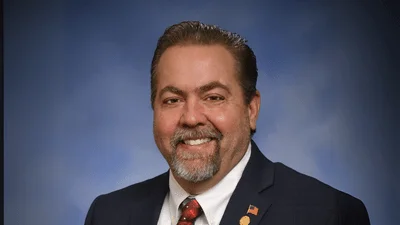Joseph G. Lehman, President at Mackinac Center for Public Policy | Mackinac Center for Public Policy
Joseph G. Lehman, President at Mackinac Center for Public Policy | Mackinac Center for Public Policy
Michigan’s occupational licensing laws are creating significant barriers for residents with criminal records, according to a new policy brief released by the Mackinac Center for Public Policy. The report, titled “Unlock Opportunity: How Michigan’s Licensing Laws Block Second Chances,” examines how current regulations make it difficult for people who have served their sentences to find work and reintegrate into society.
The policy brief notes that about one million jobs in Michigan require an occupational license. Many of these licenses are out of reach for individuals with criminal histories, regardless of how much time has passed since the offense or whether the conviction is relevant to the job they seek. This situation makes it harder for rehabilitated individuals to secure stable employment, despite research indicating that consistent work reduces the likelihood of reoffending.
While bipartisan reforms were enacted in 2020 to limit automatic denials based on criminal records, the Mackinac Center argues these changes left significant loopholes and did not go far enough. The report recommends expanding key elements of those reforms across all licensed professions. It suggests that licensing boards should only be allowed to deny licenses if a felony conviction is directly related to the occupation in question and that state officials must demonstrate a genuine public safety concern before denying an application.
Jarrett Skorup, vice president for marketing and communication at the Mackinac Center and author of the report, stated: “No person or business should ever be forced to hire someone with a criminal record, but the government should not punish people for life by making it illegal for them to get a license, find a job, and improve their own lives. Michigan lawmakers should change state licensing laws to make it easier for people to rehabilitate their lives, provide for their families, and contribute to society.”
The full policy brief is available online.





 Alerts Sign-up
Alerts Sign-up